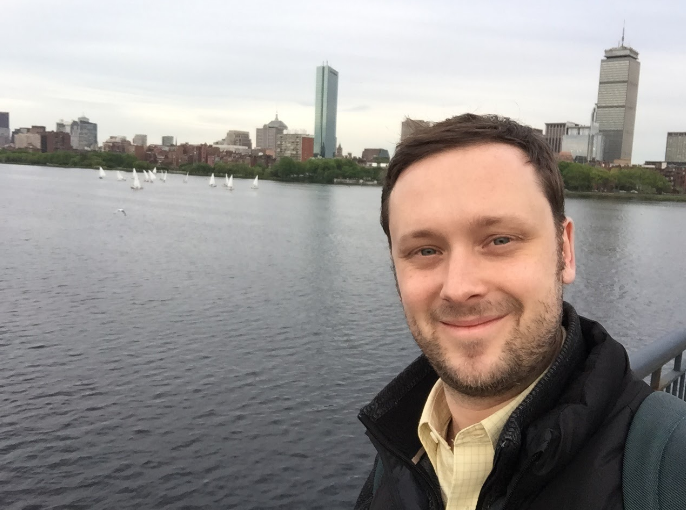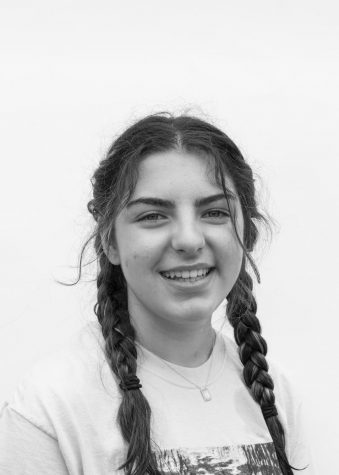New Teacher Spotlight: Profe Suchek
December 22, 2020
Register Forum: What inspired you to become a teacher?
Profe Sucheck (PS): Teaching has alway been kind of natural. I have always been interested in teaching because I always looked up to my teachers in school. I imitated them when I was a kid. I used to play school with my parents and my sister, trying to teach them things I had learned in school or somewhere. And I just really loved the whole vibe of being a teacher. Then, as I got older, I really found that my teachers meant so much to me. In my house, education was always very important. My mom and sister are teachers (they have taught me so much), a bunch of aunts and uncles were teachers, my dad taught for a bit (he always taught us how to be curious about the world), so I think it was always in my environment.
RF: Why did you choose to come to CRLS?
PS: It just happened by chance really! One of my friends who works at CRLS, told me about a teaching position available that I should look into. So I applied, not expecting to get hired because of the pandemic. But things ended up working out in the end!
RF: What are the differences you notice between where you came from and where you are now?
PS: The difference between my old school and CRLS is mainly in the structure of the schools. The structure of school is a little different, and the general management of school seems different. I like the feeling of autonomy I have here in terms of lesson planning, and in terms of developing my own curriculum as well as the support from a union, which I really appreciate. Furthermore, the size is also very different. My old school was much smaller, and so we had a lot more community feeling by virtue of being smaller. In terms of student populations, there seems to be a lot more variety of ethnicities and languages spoken at CRLS. In terms of similarities, I think both schools have very strong social commitments to being anti-racist, and to being progressive in most areas. Moreover, the teachers I met here and the teachers at my old school seem equally good in terms of qualifications, mission, and mindset. And the students are great, both there and here.
RF: Why did you decide to teach Spanish?
PS: I have been teaching languages (Italian, English, and Spanish) to non-speakers since I was twenty. When I was in college I was helping the Italian department, so it seemed natural for me to get myself into languages. With Spanish, it happened that I moved in my early twenties to Spain, and then I stayed there for almost seven years. I attended university there, and got a translation degree; but then I got bored of translating, and I went back to teaching because I think it is more interesting. Most of my life I have been teaching adults, so this is only my fifth year teaching high school students. I love teaching Spanish because I feel a connection to Spanish, even though it is not my mother tongue. I grew up bilingual, speaking Italian and English at home, and since both Italian and Spanish are Latin languages, I felt a linguistic and cultural connection to Spain.
RF: What is something you think is important to point out when learning a foreign language?
PS: I think there is a lot of anxiety around learning new languages—especially for students who are heritage speakers of Spanish—because there are a lot of expectations from people who are Spanish speaking [that are] in Spanish speaking communities. So there are a lot of psychological dimensions of language. My goal and role as a language teacher is to somehow remove some of this anxiety, some of this pressure, and some of this heavy emotional aspect of learning languages, and make it more of a personal journey. Nobody is ever perfectly bilingual. I don’t want people to ever feel this anxiety around learning a language. It should be something—even though it’s difficult—that is always positive, never causing shame or stress. So that is one of the reasons why I am teaching.
RF: If you could visit any place in the world, where would you go?
PS: Recently, I have been thinking a lot about Mongolia and the steppes of Asia. I am very interested in how it spaces with a lot of sky, and being around few people, because it is such a different lifestyle from my current one. I think living in cities my whole life has, especially lately, made me dream about wide open space.
RF: In what ways do you hope to impact your students’ lives?
PS: My hope is for students to be able to feel comfortable enough to express themselves intellectually according to their individual dispositions, tendencies, and personalities. I think each individual is so unique, and I hope through the medium of language they can find a new way to express themselves and contribute in any way to society or their lives. The smaller picture is, of course, that I want them to be interested in learning Spanish. But most importantly, I really hope they can become critical thinkers. I enjoy the process of teaching because it creates a space where there is a free-flow of information. I like to engage with students intellectually, and part of my teaching is a bit selfish because I learn so much from my students. Ultimately, the biggest feedback for me is from students, if they have a positive thing or a negative thing to say, it is something I listen to the most.










